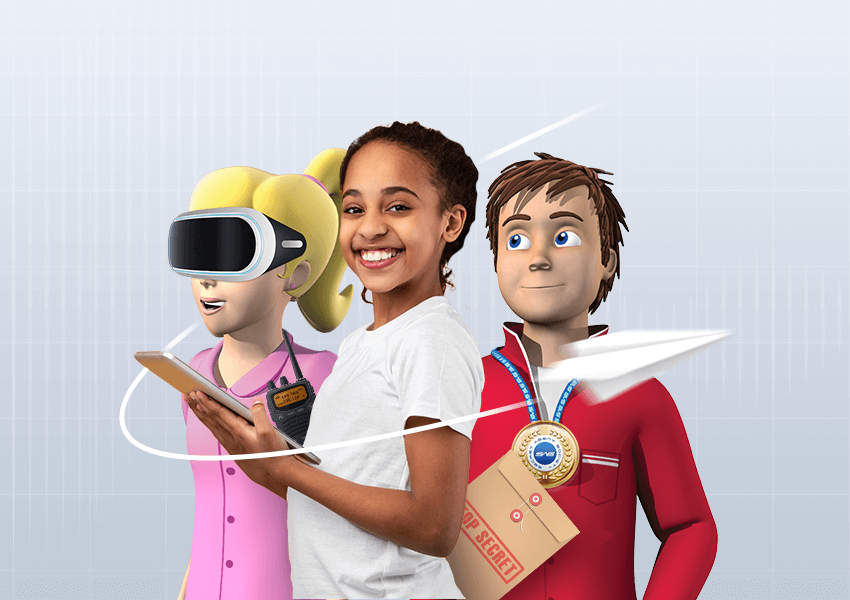A psychologist’s tips for how to answer tough questions from toddlers and pre-schoolers
Kids have a lot of questions.
Not all are fun trivia questions about the Eiffel Tower or Mount Everest.
Sometimes, children can ask you about serious topics.
Kids questions can be difficult.
Whether they’re asking about death or problems in the family, working through difficult situations and emotions with your children is challenging.
You want to find a balance between engaging with the question and showing that you’re listening, with an understanding of what your child can understand – avoiding confusing or overly distressing information
Not easy, especially if you’re finding the situation difficult yourself.
Read on for some tips to help navigate tricky questions from kids.

Age appropriateness
When answering tough questions from toddlers and pre-schoolers, it can be tempting to sugarcoat and avoid potentially distressing information.
For instance, if you’re talking about a relative who has passed away, it might feel easier to tell your child that they’ve ‘gone on a long holiday’.
Try not to fall for this temptation. Your answer needs to be honest.
However, it’s also important to use age-appropriate language when tackling serious subjects.
Children may not understand all the different elements of upsetting topics, so it’s best to represent the truth in a way they can grasp.
For example, in the case of death, it can be effective to say something like ‘it’s when someone goes away and we can’t see them, but we can still love them’.
Books and visuals
You’re not alone in dealing with kids’ difficult questions.
Fortunately, this often means you’ll be able to find books and forms of visual media that can help you explain the topic sensitively and appropriately.
Firstly, you might be able to find material aimed towards you, providing detailed approaches and techniques for explaining complicated issues to your children.
Secondly, there could be some media aimed directly at explaining complex issues to your children.
Have a look online or in a local bookstore for materials that can help you.
Reflection and validation
One of the most significant things to keep in mind when answering tough questions from young people is to ensure they understand you’re listening and engaging with them.
It’s crucial that the child feels validated, both for the question they’re asking now and for building trust that you’ll help them with tough topics in the future.
When answering kids questions, explicitly say things like ‘I can see you’re feeling worried’ to make sure they know you’ve heard them.
If you like, reflect out loud and repeat parts of their questions back to them, or double-check with them that you’ve understood what they’re asking.
Making sure your child feels heard is hugely important when going through challenging subject matter with them.
The importance of honesty
When children ask tough questions, you don’t need to have all the answers.
If you feel that you don’t know enough about a topic or don’t know how to explain something to your child, be honest and say that you’re not sure.
Tell them you’ll think about the question and talk again when you’ve understood the issue.
Then, do some research and follow it up later.
If you have given an answer you later decide was untrue or incomplete, tell your child that and present a new response to their question.
Being honest and open is essential to creating trusting relationships between adults and children.
The right time
Kids can ask difficult questions at inappropriate times.
You may find yourself unable to answer a tricky question. It might seem tempting to try and distract from the question and move on as if nothing had happened, but that may leave your child feeling unheard.
One of the best ways to deal with this situation is to acknowledge what your child has said and make it clear to them that you’ll think about it and be able to talk about it later.
If you like, you can specify exactly when, such as when you get home or on the car ride back from an event.
Once you reach a safe and appropriate environment, you can bring up the question and talk it through.
How we can help
If your children are working through difficult emotions and situations,
Early Start Australia can help.
Our psychologists are experienced in working with children, young adults and families and provide support for learning and development, managing behaviours, emotions and thoughts and maintaining and improving mental health.
Working with a child psychologist can be a great source of support, and we are here to help you on your therapy journey.
We offer psychology services Australia wide through our network of clinics.
Get in touch today and our team will be happy to assist you.









